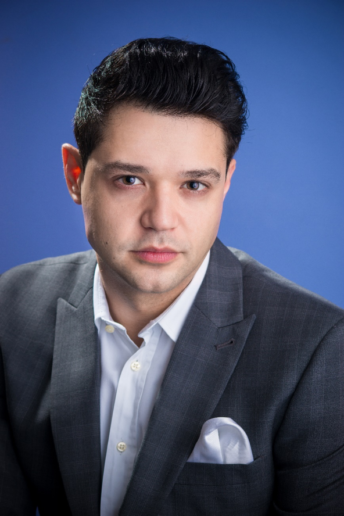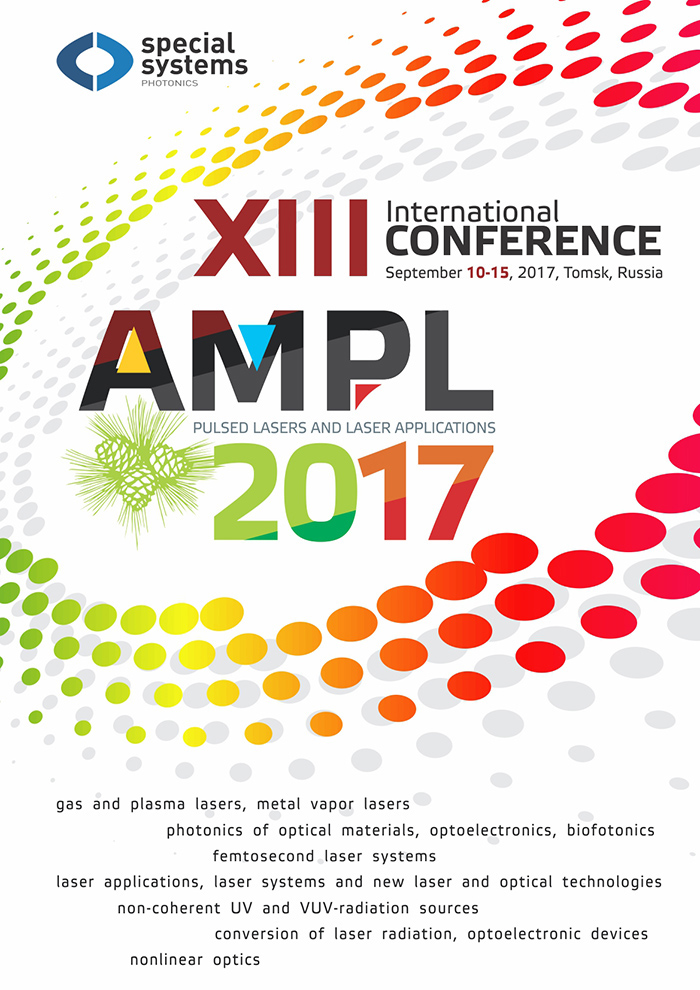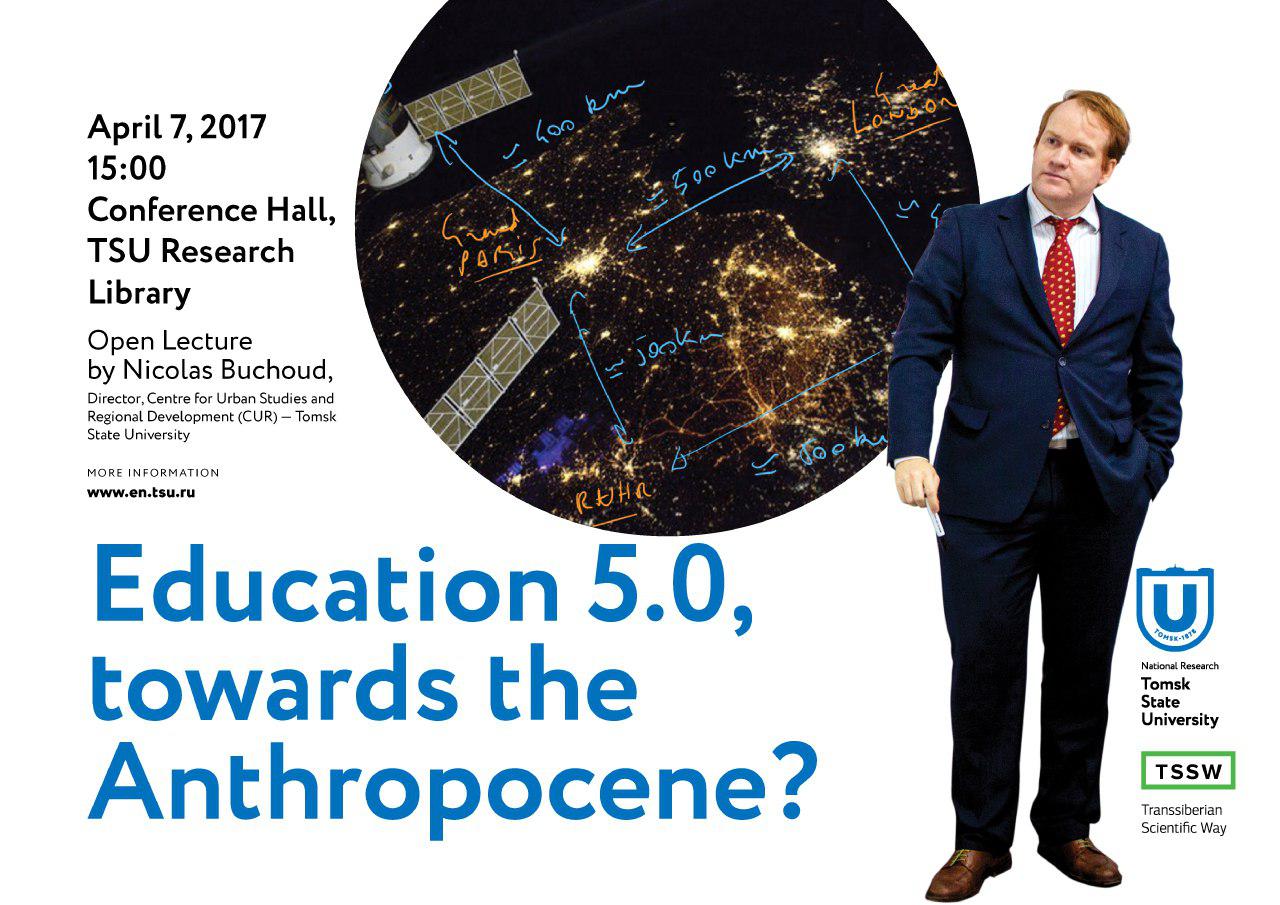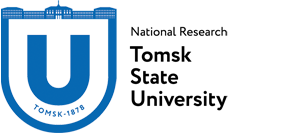Agenda
September 15, 2017 – Open Lecture ‘Eyes are the Window to the Future Soul’ Predicting Individual Differences in Children’s Temperament and Behaviour from Day 1’ by Dr. Kostas A. Papageorgiou (Director of the InteRRaCt Lab; Lecturer in Developmental Psychopathology; Queen's University Belfast,School of Psychology).
The International Centre for Research in Human Development invites TSU undergraduates, MSc and PhD students and lecturers from different academic backgrounds to the open lecture ‘Eyes are the Window to the Future Soul’ Predicting Individual Differences in Children’s Temperament and Behaviour from Day 1” by Dr. Kostas A. Papageorgiou (Director of the InteRRaCt Lab; Lecturer in Developmental Psychopathology; Queen's University Belfast, School of Psychology).
Dr Kostas Papageorgiou will present an interdisciplinary study on the association between visual attention in the first year of life and temperament, behaviour and symptoms of psychopathology in childhood.
The findings of the study suggest that while there are many factors which influence behavioural problems and temperament in childhood, part of what affects later behaviour is already present at birth. As such, the origins of individual differences in behaviour are not likely to be wholly due to the postnatal environment. These causal factors could be genetic or stemming from the prenatal/perinatal environment.
Studying visual attention in the first year of life constitutes a window into the developmental mechanisms that contribute to variation in temperament, behaviour and psychopathology throughout the lifespan. The lecture will discuss the following questions:Why should we study newborns’ and infants’ visual attention?What are some of the factors that influence attention at birth?How can we assess visual attention?Can early visual attention predict variation in behaviour and psychopathology in childhood?Why do we need interdisciplinary studies in Psychology?
If you would like to learn more about Dr. Kostas A. Papageorgiou:.
 Dr.Papageorgiou is a Lecturer in Developmental Psychopathology at Queen’s University Belfast and an Associate Professor in Personality Psychology, Psychology Department at Tomsk State University in Russia. Kostas lectures on MSc courses in the School of Psychology at Queen’s and supervises BSc, MSc, PhD, and Post-Graduate students’ research. He is also the convenor of the course “Interdisciplinary Study of Development” in the MSc Human Development: Genetics, Neuroscience and Psychology at Tomsk State University. Kostas is the Director of the InteRRaCt Lab and an International Associate Member of InLab at Goldsmiths, and the Russian-British Behavioural Genetics Laboratory at the Psychological Institute of the Russian Academy of Education. He is also a member of the committee of the Special Interest Group in Paediatric Psychology of the Psychological Society of Ireland and a member of the International Society for Intelligence Research.
Dr.Papageorgiou is a Lecturer in Developmental Psychopathology at Queen’s University Belfast and an Associate Professor in Personality Psychology, Psychology Department at Tomsk State University in Russia. Kostas lectures on MSc courses in the School of Psychology at Queen’s and supervises BSc, MSc, PhD, and Post-Graduate students’ research. He is also the convenor of the course “Interdisciplinary Study of Development” in the MSc Human Development: Genetics, Neuroscience and Psychology at Tomsk State University. Kostas is the Director of the InteRRaCt Lab and an International Associate Member of InLab at Goldsmiths, and the Russian-British Behavioural Genetics Laboratory at the Psychological Institute of the Russian Academy of Education. He is also a member of the committee of the Special Interest Group in Paediatric Psychology of the Psychological Society of Ireland and a member of the International Society for Intelligence Research.
In 2011, Kostas was awarded a European Marie Curie Fellowship to pursue a PhD (2011-2015) at the Centre for Brain and Cognitive Development at Birkbeck University of London. His doctoral thesis “Individual Differences in Infant Visual Attention: Links to Child Temperament, Behaviour and Genetic Variation” explored the genetics of visual attention in the first year of life; and the degree to which individual differences in newborns’ and infants’ visual attention predict variation in temperament, cognition and symptoms of psychopathology in childhood.
Kostas uses an interdisciplinary approach in his research, combining methods in cognitive and developmental neuroscience, personality assessment and genetics to study some of the factors that contribute to individual differences in resilience, cognition and academic performance.
Date: September 15, 2017 (Friday), 16.35-18.10
Venue: Tomsk State University, International Centre for Human Development Studies, 4 building, room 022 (conference room).
Contact information: e-mail: icrhd@mail.ru
Phone +7 (3822) 786 050
The XIII AMPL Conference will be traditionally devoted to physical and chemical processes in laser active media, new active media and pumping methods, new lasers development technologies, fundamental issues of laser physics, applications of lasers in science, technology, medicine and other fields, the development of laser-based devices, new optical technologies
Scientific program of the Conference includes the following sessions:
- gas and plasma lasers, metal vapor lasers (session A);
- photonics of optical materials, optoelectronics (session B);
- femtosecond laser systems (session C);
- laser systems and new laser and optical technologies, laser applications (session D);
- non-coherent UV and VUV-radiation sources (session E);
- conversion of laser radiation, optoelectronic devices. nonlinear optics (session F);
- round table discussion “Biofotonics” (session G);
- gas discharges for lasers and non-coherent radiation sources (session H).
The Conference provides for listening to the invited and oral presentations and work of poster sessions. The abstracts of the papers and AMPL-2017 program will be posted on the Conference web-site and published. Some papers, chosen by the Organizing Committee will be published in special issues of “Atmospheric and Ocean Optics” journal.
Organizers:
-
V.E. Zuev Institute of Atmospheric Optics SB RAS, Tomsk, Russia
-
Institute of High Current Electronics SB RAS, Tomsk, Russia
-
Siberian Physical Technical Institute, TSU, Tomsk, Russia
-
Tomsk Polytechnical University, Tomsk, Russia
The official language of the Conference is English.
For participation in the Conference you are kindly requested to submit a preliminary application and paper abstracts in electronic form to the Organizing Committee.
The Organizing Committee address:
Website: https://symp.iao.ru/en/ampl/13
Group in Faсebook: AMPL.Conference
E-mail: ampl@asd.iao.ru

The field workshop «Mesozoic and Cenozoic paleobiogeocenoses of the Northern hemisphere» will be held within the framework of the main activity of the Laboratory of Mesozoic and Cenozoic continental ecosystems (TSU, Faculty of Geology and Geography).
Dates: July 15 – 30 (Module 1), August 4 – September 3 (Module 2)
Language: English, Russian
Target group: international students, researchers and professors
Application deadline: May 25, 2017 (Module 1), June 15 (Module 2)
Topics: paleontological, stratigraphic and paleogeographic methods of field research
Short description of the school:
The Laboratory does interdisciplinary research of Mesozoic and Cenozoic biogeocenoses, abiotic and biotic relationships, problems of extinction and survival of organisms. The field works will be carried out on paleontological sites, natural and artificial geological sections. There will be lectures and practical training in the methods of excavations and basic principles of taphonomic and paleoecological analyses, stratigraphic and paleogeographic research.
The workshop will consist of two local modules:
1. The Chulym River basin (Achinsk, Bol’shoy Uluy, Kozul’ka districts of Krasnoyarsk territory; the field workshop area is 500–600 km away from Tomsk). The territory of research includes dinosaur and mammoth fauna sites (Berezovaya Rechka, Krasnaya Rechka and others), important Mesozoic (Bol’shoy Ilek) and Pleistocene geological sections of the Chulym River and its tributaries. We have a boat trip planned as a part of this module.
2. The undrained lake basin of the Baraba lowland (Kargat, Barabinsk, Chany districts of Novosibirsk province; the field worskshop area is 500–600 km away from Tomsk). The territory of research includes Volchia Griva, one of the largest mammoth fauna site comprising Paleolithic artifacts, and Pleistocene geological sections of the Om’ River and Lake Chany.
Summer school schedule preliminary:
Module 1: July 15 – 30 (the field period is 12 days);
Module 2: August 4 – September 3 (the field period is 26 days). The schedule of the module is flexible. Students may join Module 2 after the start date of the programme and may withdraw prior to the module’s end date. In this case, however, the cost of individual transportation is the responsibility of the attendee.
The workshop will be held in field camps in taiga and forest-steppe zones. There will be an expedition bathhouse (Russian banya) available on site. All the participants are expected to take turns at cooking as catering is not provided. The school programme will also include excursions in Tomsk, safety trainings, supplies purchase, and field equipment preparation (three days before and two days after the fieldwork period).
Cell phone service:
Stable (several mobile phone service providers)
Desirable vaccination:
Tick-borne encephalitis vaccination. If the participants are not vaccinated, there will be medication available on site.
Contacts:
International Students Services Centre, Tomsk State University, Buyanovsky Lane, Office 15, Tomsk, Russia, 634050; tsusummerschool@mail.ru, http://studentcenter.tsu.ru/, phone: +7 (3822) 785-606
Contact person at the faculty: Sergey V. Leshchinskiy, sl@ggf.tsu.ru
III conference «Social Sciences & Health Innovations: Making Health Public» will be held at Tomsk State University on 22-24 May 2017 in Tomsk, Russia.
Social sciences play a central role in analysing public health innovations’ dynamics and for understanding the corresponding challenges. This conference examines the complexities of making health public by engaging the perspectives of the social sciences, including science and technology studies (STS), medical anthropology, sociology and history. Furthermore, it is meant to serve as a platform to facilitate dialogue between social and biomedical scientists, public health professionals and policy makers, and for engagement between scholars and practitioners working in the field of health innovations in the post-Soviet region and globally. The conference considers public health-related innovations on different levels (from the community level to national programmes and global efforts) and of different kinds (conceptual, organisational, political).
Tomsk State University invites you to participate in Third International Conference Social Sciences & Health Innovations: Making Health Public (May 22–24, 2017).
What exactly does the ‘public’ stand for in public health? Public refers to collectives and solidarities on a local, national and global scale; but how are they made, maintained and legitimized amidst diversity of the globalizing world?
Social sciences play a central role in analysing public health innovations’ dynamics and for understanding the corresponding challenges. This conference examines the complexities of making health public by engaging the perspectives of the social sciences, including science and technology studies (STS), medical anthropology, sociology and history.
Conference speakers:
-
Tiago Moreira (Reader at School of Applied Social Sciences, Durham University)
-
Martine Bouman (Scientific Director of the Center for Media & Health and Prof. Entertainment Media and Social Change, Erasmus University Rotterdam)
-
Vikram Patel (Professor of International Mental Health and Wellcome Trust Principal Research Fellow in Clinical Science, London School of Hygiene & Tropical Medicine; the Pershing Square Professor of Global Health, Harvard University) – to be confirmed
-
Susanne Bauer (Associate Professor at the Centre for Technology, Innovation and Culture, University of Oslo)
-
Klasien Horstman (Professor of Philosophy of Public Health, Maastricht University)
We welcome both individual paper proposals and proposals for closed thematic panels. Please submit your applications via the electronic form by 15 January 2017. Individual paper proposals should be submitted here; Panel proposals should be submitted here. If you have any questions contact the conference organizers: healthinnovations2017@gmail.com .
This conference is the third international event organized as a collaborative endeavor between Maastricht University (the Netherlands), and Tomsk State University (the Russian Federation), with participation from Siberian State Medical University (the Russian Federation). The previous conference in the series took place in 2015 and was titled Social Sciences and Medical Innovations: Doing things together (for details see: http://en.past-centre.ru/conferences-seminars/social-sciences-and-medical-innovations-2015/ )
Organizing committee cordially invites students, PhD students and young scientists (up to 35 years old) to participate in the XIV International Conference of Students and Young Scientists "Prospects of Fundamental Sciences Development" to be held on April 25–28, 2017 in Tomsk, Russia.
Within the framework of the Conference, the professional development program “Modern trends in the production and investigation of functional materials” is organized (participants will be provided with a certificate; participation fee is 700 RUB).
Important Dates:
March 1, 2017 – Paper submission deadline
March 15, 2017 – Acceptance notification
April 1, 2017 – Registration fee payment deadline
April 25–28, 2017 – Conference
- Physics: condensed matter physics; surface physics; accelerator physics; hydrogen energetic; geophysics; modeling of physical processes
- Chemistry: synthesis and properties of functional materials; physicochemical analysis methods for materials; nanomaterials; ecology; organic synthesis; catalysis and petrochemistry
- Mathematics: mathematical modeling and data analysis; mathematical methods in physics, chemistry, biophysics, biology, economics, medicine, psychology; mathematical logic and its applications; computational mathematics; differential equations
- Biology and Fundamental Medicine: anatomy and physiology (including pathological states); immunology; neurology and psychiatry; cell biology and histology; genetics; biochemistry and molecular biology; microbiology and virology; biophysics; biotechnologies; bioengineering; pharmacology and pharmacognosy; cybernetics and bioinformatics; biomaterials: in vitro and in vivo studies
- Economics and Management: institutional and industrial economics; innovation policy and entrepreneurship; tax policy and regulation; finance; money circulation and credit; accounting, analysis and audit; statistics; management, labor economics; mathematical and data methods in economics, management and business; development of state and municipal management system, multidisciplinary economic researches; international economic relations
- Construction and Architecture: construction method; construction materials, products and constructions; nanotechnologies in construction; electrotechnics and electromechanics; engineering science and mechanics; engineering geology; architectural design technique; history and theory of architecture; restoration and reconstruction of architectural heritage; design of architectural environment.
Within the framework of the session, the Contest of Architectural Projects "Red lines"will be organized in the following following categories:"Private House"; "Interior Design"; "Architecture and Urban Planning"; "Second Life of Historical Buildings" - Information Technologies and Electronics: intelligent control systems; automated data processing and control systems; information security; nanoelectronics; production and research of nanomaterials; optoelectronics and nanophotonics; plasma emission electronics; intelligent power electronics; microwave electronics; systems of radiolocation, TV, radio, radiometry and wave propagation of radio frequency and acoustic bands; pulse and radio frequency measurements
Site and contects: http://science-persp.tpu.ru/Default_en.aspx
The International Conference «Social Sciences Today: Current Issues and New Horizons» will be held at Tomsk State University, Faculty of Philosophy on 21-22 April 2017 in Tomsk, Russia.
We call for papers from undergraduates, PhD students, and junior faculty. We welcome your active participation.
Sections:
-
English-Speaking Session. “Scholarly Writing and Presentation”
-
Trends and prospects in modern social reality development
-
Philosophy and methodology of science
-
History of philosophy, logic and philosophy of language
-
Philosophical problems of the arts and sciences
-
Sociology today
-
Prospects for political science: Russian and world experience
-
Hot topics in social work theory and practice
-
Humanitarian information science: a study of the information society and the social problems of informatization
Please fill out the application form (http://fsf.tsu.ru/conf2017/) or send the letter to the curator.
Abstracts should be 300 words maximum. Abstracts received after the deadline of 10 April 2017 will not be considered.
Contacts: 8, Moskovsky trakt, Tomsk, 634050, Russia; Tel.: +7 (3822) 527 335; Http:\\ www.fsf.tsu.ru; E-mail: kirilenko_juilia@list.ru
National Research Tomsk State University is holding an international research and practice conference “MOOCs in the context of modern education: towards the digital university” and 5th Siberian School “Massive open online courses: design, promotion, and application”, 17–19 April, 2017.
Conference events are aimed at searching for possible solutions to today’s challenges in online pedagogy and developing the eLearning system; discussing the prospects of MOOCs in light of the digital universities that are being established; and defining and analyzing methods of enhancing the quality of eLearning.
The conference participants will be able to:
-
unleash the teaching principles of open education,
-
extend their understanding of the impact that eLearning has on educational and research processes in a university,
-
analyze national practices of integrating MOOCs into the institutions of professional education,
-
define crucial effectiveness indicators and the prospects for using open online courses in their activity
-
develop their own model of integrating MOOCs into a learning process (university, school, or career colleges).
CONFERENCE WORKING HOURS:
April 17 – 19 from 10 a.m. to 6 p.m. (GMT+06:00)
LOCATION:
Tomsk State University, 36 Lenina Pr., Tomsk, Russia 634050
CONTACT US:
Arenkina Ekaterina (arenkina@ido.tsu.ru) – all conference events, hotel reservations
Phone: +7 (3822) 52-94-94 or +7 (3822) 53-44-33
http://mooc.tsu.ru/en/conference/
We are all witnessing and contributing to a great transition age. Following the development of the internet (1.0), the development of social networks has been faster (2.0). Recently, the era of connected objects or internet of things (IoT) has started (3.0). The change is now affecting industrial structures (4.0), while in 2016 a «Society 5.0» initiative was born. Moving from the information society to the Super Smart Society, the future might then be about connecting IoT, AI (artificial intelligence), robots and life science altogether.
But is this the only way forward?
In an era of unprecedented urbanisation and impact of human activities on the biosphere, described as the Anthropocene, how will human and social sciences meet digital challenges? Are universities still the place to build and share the knowledge bricks of the 21st century? And what if, in parallel to the development of a “New Silk Road”, Siberia played the host for a new version of the “Great Northern Expeditions” and become a distinctive cradle of progress for our times?
Location: Tomsk State University, Conference Hall, TSU Scientific Library (34a Lenina Pr., Tomsk).

March 30, 2017 Open Lecture “The promises and challenges of using transcranial electrical current stimulation to modulate social processing abilities” by Dr Michael Banissy (Psychology Department, Goldsmiths, University of London, UK)
The International Centre for Research in Human Development invites TSU undergraduates , MSc and PhD students and lecturers from different academic backgrounds to the open lecture “The promises and challenges of using transcranial electrical current stimulation to modulate social processing abilities” by Dr Michael Banissy (Department of Psychology, Goldsmiths, University of London, UK).
Lector: Dr Michael Banissy, Director of the Non-Invasive Brain Stimulation Laboratory, Department of Psychology, Goldsmiths, University of London
Title: “The promises and challenges of using transcranial electrical current stimulation to modulate social processing abilities”
Abstract:
Our ability to successfully perceive and use social signals is a critical feature of our everyday lives. Difficulties in perceiving social cues contribute to deficits in communication and social competence, reduced quality of life, and social isolation. Given this, techniques that enhance social perception could be valuable. One approach that has been shown to be a useful tool to facilitate a variety of cognitive and perceptual abilities is transcranial electrical current stimulation (e.g. transcranial direct current stimulation, transcranial random noise stimulation, transcranial alternating current stimulation). While commonly employed in non-social domains (e.g. numerical cognition, motor learning), fewer studies have examined the utility of this approach for modulating the perception of social information. In this talk, I will describe a series of studies using transcranial electrical current stimulation in order to examine neural processes that are involved in specific social perception abilities, and whether we can use brain stimulation to aid the processing of social cues. The talk will include studies examining facial identity and emotion perception, social cognition (particularly self-other representations), and examining affective state modulation following transcranial electrical current stimulation. I will discuss the promises and challenges of using transcranial electrical current stimulation to modulate social perception abilities in different groups (younger and older typical adults and atypical adults).
Biography:
Michael Banissy is a Reader in Psychology at Goldsmiths where he is the Director of the Non-Invasive Brain Stimulation Laboratory. Prior to taking up his position at Goldsmiths he worked at the Institute of Cognitive Neuroscience (University College London) where he completed his PhD (awarded 2010) and held personal Post-Doctoral Fellowships awarded by the British Academy and the Economic and Social Research Council. He has contributed to several diverse research areas, including synaesthesia, social cognition, brain stimulation, and face recognition. This has resulted in him receiving a number of honours, including substantial external funding and prizes from major scientific bodies in the UK and internationally (e.g. 2016 British Psychological Society Spearman Medal, 2017 Bertleson Award).
Date: March 30, 2017 (Thursday), 16.35-18.10
Venue: Tomsk State University, International Centre for Human Development Studies, 4 building, room 022 (conference room).
Contact information: e-mail: icrhd@mail.ru; phone +7 (3822) 786 050
"Academic Writing for Publication" will be offered again this semester, spring 2017. Instructor: Jean Kollantai, MSW.
Course members should already have an intermediate level of English. The course lectures, discussions, materials, and assignments will be entirely in English (without translation).
Those who take the course should have an intention to publish an article in English in their field in an academic journal that is listed on Scopus or Web of Science after taking the course (but a current project is not required).
There will be some weekly work at home, at least one consultation with the instructor, and a final presentation. Attendance at every session is required.
The course is open to faculty and laboratory members and graduate students. Seats are limited to 20. (If necessary, priority for enrollment will be given to new course members and those working in laboratories, centres, and joint Russian-international educational programmes.)
Those who meet the course participation standards will be eligible for a certificate of completion from ИДО.
To register you must:
1. Send an email with your surname, name, position and phone number to jeankollantai@yahoo.com (use subject line: AWFP), by March 1 or sooner.
2. Come for a short meeting with Jean about your research interests and interest in the course by Friday, March 3.
Time: 14.45-17.20
Dates: March 11, 18, 25, April 1, 8, 15, 22 (Saturdays)
4th Building, floor 5, room 520
Contact for questions: 8-913-809-6304, kirilenko_juilia@list.ru (Julia Kirilenko)
"Academic English" will be offered again this semester, spring 2017. Instructor: Jean Kollantai, MSW.
This course will be about reading – writing – understanding – and speaking English for academic purposes. Some of the topics covered will be letters and email – CVs – making a presentation at a conference – writing an abstract – following your topic in a journal – and talking with international colleagues, along with publishing articles.
Course members should already have an intermediate level of English. All lectures, discussions, and materials will be in English (without translation). There will be some weekly work at home, at least one consultation with the instructor, and a final presentation. Attendance at every session is required.
The course is open to faculty and laboratory members and graduate students. Seats are limited to 20. (If necessary, priority for enrollment will be given to new course members and to those working in laboratories, centres, and joint Russian-international educational programs or preparing lecture/seminar courses in English.)
Those who meet the course participation standards will be eligible for a certificate of completion from ИДО.
To register you must:
1. Send an email with your surname, name, position and phone number to jeankollantai@yahoo.com (use subject line: AE), by March 1 or sooner.
2. Come for a short meeting about your research interests and interests in the course by Wednesday, February 28. (room 305, 4th Building).
Time: 16.35-19.10
Dates: March 9, 16, 23, 30, April 6, 13, 20 (Thursdays)
4th Building, floor 5, room 520
Contact for questions: 8-913-809-6304, kirilenko_juilia@list.ru (Julia Kirilenko)

